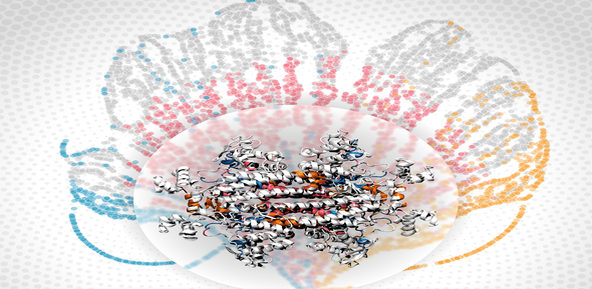
Computational modelling of cancer and aging
Key Words
Cancer, aging, systems biology, cellular dynamics
Research Interests
As tissues age, cells accumulate mutations that change the activity of proteins. These changes may alter how the cells grow and compete in the tissue, enabling clones to persist and expand by increasing their fitness. Over time these clones may colonise the tissue, only to stop or regress as they meet alternative clones of similar or greater fitness. This process of expansion and regression may occur several times over a lifetime. Fit clones are however not necessarily cancer progressing, but may contain the seeds of cancer.
My group uses computational biology to study the impact of mutations on cells, from how it changes the activity of individual proteins, to how it alters the phenotype of the cell, to the competition of cells in a tissue. Through understanding the effect of mutation we hope to identify new routes to patient stratification and therapy.
Key Publications
Vasiliki Kostiou, Michael W. J. Hall, Philip H. Jones, Benjamin A Hall. Simulations reveal that different responses to cell crowding determine the expansion of p53 and Notch mutant clones in squamous epithelia. Journal of the Royal Society: Interface (2021)
David Shorthouse & Benjamin A Hall SARS-CoV-2 Variants are Selecting for Spike Protein Mutations that Increase Protein Stability. JCIM (2021)
Bartomeu Colom , Albert Herms , Michael Hall , Stefan Dentro , Charlotte King , Roshan Sood , Maria Alcolea , Gabriel Piedrafita , David Fernandez-Antoran , Swee Hoe Ong , Joanna Fowler , Krishnaa Mahbubani , Kourosh Saeb-Parsy , Moritz Gerstung , Benjamin A Hall, Philip H. Jones Mutant clones in normal epithelium outcompete and eliminate emerging tumours. Nature (2021)
David Shorthouse, Angela Riedel, Emma Kerr, Luisa Pedro, Dóra Bihary, Shamith Samarajiwa, Carla P. Martins, Jacqueline Shields, Benjamin A. Hall Exploring the role of stromal osmoregulation in cancer and disease using executable modelling Nature Communications volume 9, Article number: 3011 (2018) DOI:10.1038/s41467-018-05414-y
